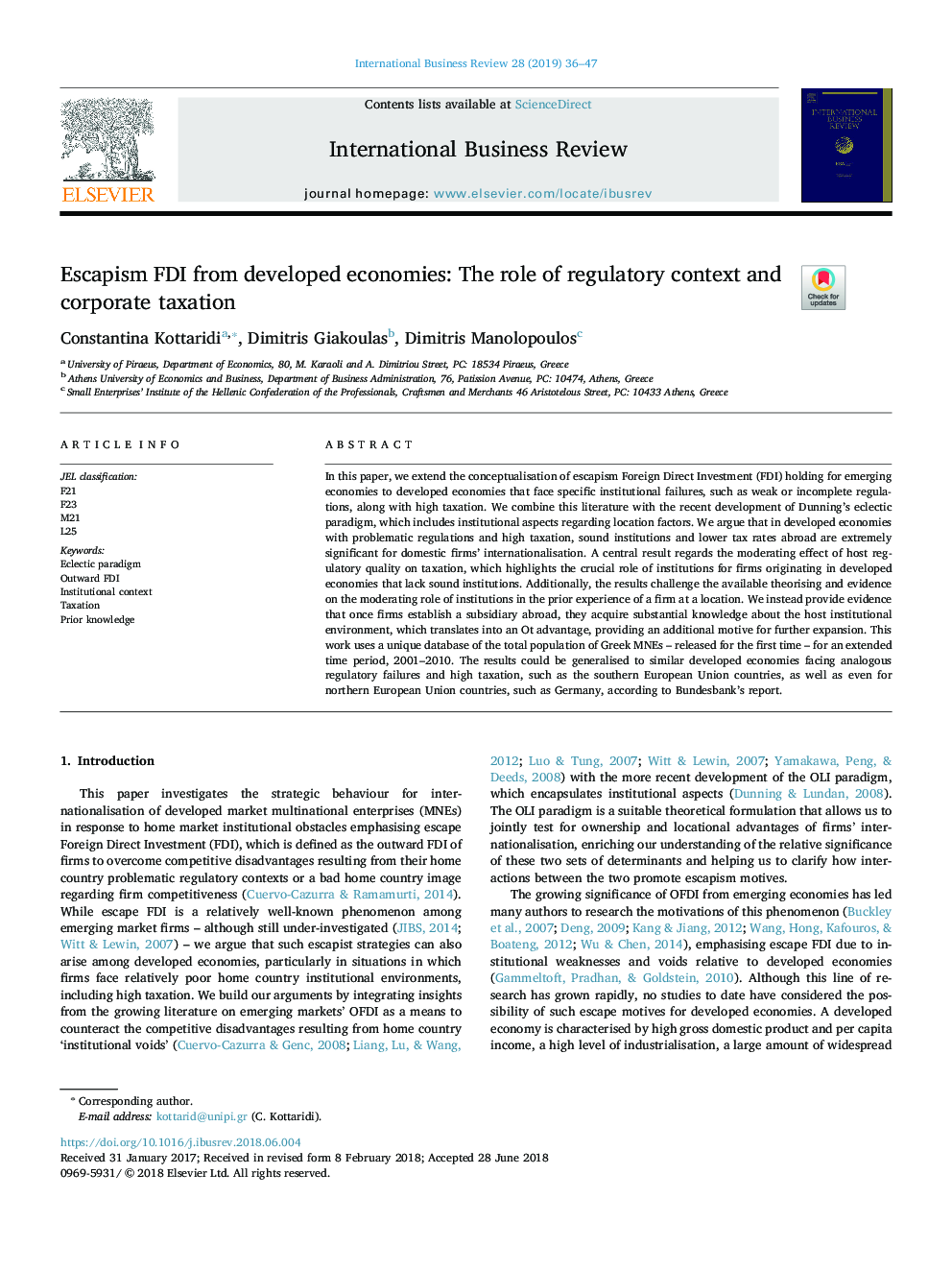| Article ID | Journal | Published Year | Pages | File Type |
|---|---|---|---|---|
| 7412388 | International Business Review | 2019 | 12 Pages |
Abstract
In this paper, we extend the conceptualisation of escapism Foreign Direct Investment (FDI) holding for emerging economies to developed economies that face specific institutional failures, such as weak or incomplete regulations, along with high taxation. We combine this literature with the recent development of Dunning's eclectic paradigm, which includes institutional aspects regarding location factors. We argue that in developed economies with problematic regulations and high taxation, sound institutions and lower tax rates abroad are extremely significant for domestic firms' internationalisation. A central result regards the moderating effect of host regulatory quality on taxation, which highlights the crucial role of institutions for firms originating in developed economies that lack sound institutions. Additionally, the results challenge the available theorising and evidence on the moderating role of institutions in the prior experience of a firm at a location. We instead provide evidence that once firms establish a subsidiary abroad, they acquire substantial knowledge about the host institutional environment, which translates into an Ot advantage, providing an additional motive for further expansion. This work uses a unique database of the total population of Greek MNEs - released for the first time - for an extended time period, 2001-2010. The results could be generalised to similar developed economies facing analogous regulatory failures and high taxation, such as the southern European Union countries, as well as even for northern European Union countries, such as Germany, according to Bundesbank's report.
Related Topics
Social Sciences and Humanities
Business, Management and Accounting
Business and International Management
Authors
Constantina Kottaridi, Dimitris Giakoulas, Dimitris Manolopoulos,
